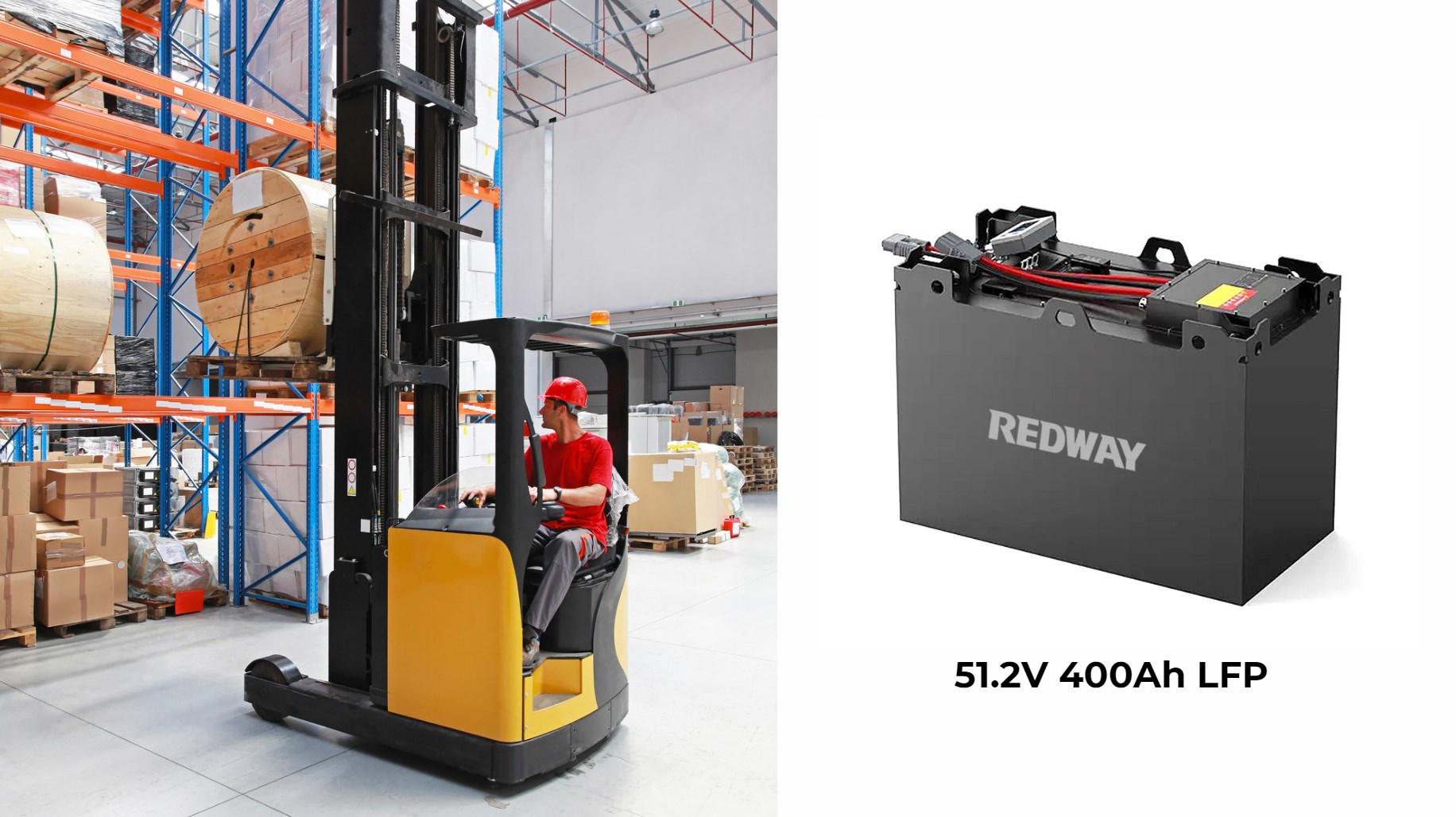LiFePO4 forklift batteries typically last between 2,000 and 3,500 cycles, translating to a lifespan of over 10 years under optimal conditions. Their longevity surpasses that of traditional lead-acid batteries, which usually last around 1,500 cycles or about five years.
Lithium Iron Phosphate (LiFePO4) batteries are revolutionizing the forklift industry with their extended lifespan and superior performance. Unlike traditional lead-acid batteries, LiFePO4 batteries offer numerous advantages that make them an ideal choice for modern forklift operations. In this comprehensive article, we will delve into the lifespan of LiFePO4 forklift batteries, the factors influencing their longevity, and best practices for maximizing their lifespan.
Understanding the Lifespan of LiFePO4 Forklift Batteries
LiFePO4 forklift batteries are renowned for their long lifespan, typically ranging from 5 to 10 years. This longevity is a significant improvement over lead-acid batteries, which generally last between 2 to 5 years. The extended lifespan of LiFePO4 batteries is attributed to their robust chemical composition and advanced technology.
Factors Influencing LiFePO4 Battery Lifespan
Several factors can influence the lifespan of LiFePO4 forklift batteries. Understanding these factors is crucial for optimizing battery performance and ensuring a longer operational life.
1. Temperature
Temperature plays a critical role in the performance and longevity of LiFePO4 batteries. These batteries perform optimally within a moderate temperature range, typically between 0°C to 40°C (32°F to 104°F). Exposure to extreme temperatures can degrade the battery’s chemical structure, reducing its lifespan. Therefore, it is essential to store and operate forklifts in environments with controlled temperatures.
2. Charge and Discharge Rates
The charge and discharge rates significantly impact the lifespan of LiFePO4 batteries. Fast charging and discharging can generate excessive heat, leading to potential damage and a shorter battery life. To prolong the lifespan, it is advisable to charge and discharge the batteries at moderate rates. Utilizing smart chargers that regulate the charging process can also help in maintaining optimal charge rates.
3. Depth of Discharge (DoD)
The depth of discharge refers to the percentage of the battery’s capacity that has been used. Frequent deep discharges can strain the battery, reducing its overall lifespan. LiFePO4 batteries are designed to handle deep discharges better than lead-acid batteries, but it is still recommended to avoid discharging the battery below 20% of its capacity regularly.
4. Number of Cycles
The number of charge-discharge cycles a battery undergoes directly affects its lifespan. LiFePO4 batteries are capable of enduring 2000 to 5000 cycles or more, depending on the quality of the battery and how it is maintained. Proper usage and regular maintenance can help achieve the higher end of this cycle range.
Maximizing the Lifespan of LiFePO4 Forklift Batteries
To ensure the optimal performance and maximum lifespan of LiFePO4 forklift batteries, it is crucial to follow best practices for their care and maintenance. Here are some key strategies to consider:

1. Follow Manufacturer Guidelines
Always adhere to the manufacturer’s guidelines for charging, discharging, and maintaining the batteries. These guidelines are tailored to the specific battery model and provide the best practices for ensuring longevity and performance.
2. Implement Regular Maintenance
Regular maintenance is essential for prolonging the lifespan of LiFePO4 batteries. This includes periodic checks of battery health, cleaning terminals, and ensuring that the battery management system (BMS) is functioning correctly. A well-maintained battery is less likely to experience premature failure.
3. Avoid Overcharging and Deep Discharging
Overcharging can lead to excessive heat generation and potential damage to the battery cells. Similarly, deep discharging can stress the battery and reduce its lifespan. Utilizing smart chargers and setting appropriate charge and discharge limits can help prevent these issues.
4. Store Batteries in Optimal Conditions
When not in use, store LiFePO4 batteries in a cool, dry place with moderate temperatures. Avoid exposing the batteries to extreme heat or cold, as this can degrade their performance and shorten their lifespan. Additionally, ensure that the batteries are stored at a partial charge rather than fully discharged or fully charged.
5. Monitor Battery Performance
Regularly monitor the performance of the batteries using diagnostic tools and software. Monitoring can help identify potential issues early and allow for timely intervention, thereby extending the battery’s operational life.
6. Use Battery Management Systems (BMS)
A battery management system (BMS) is crucial for protecting LiFePO4 batteries from overcharging, deep discharging, and other potential issues. The BMS ensures that each cell within the battery pack is balanced and operates within safe parameters, thereby enhancing the overall lifespan of the battery.
Advantages of LiFePO4 Forklift Batteries
In addition to their long lifespan, LiFePO4 forklift batteries offer several other advantages that make them an attractive option for businesses:
1. Increased Efficiency
LiFePO4 batteries provide higher efficiency compared to lead-acid batteries. They can be charged faster, allowing forklifts to return to operation more quickly. This increased efficiency translates to higher productivity and reduced downtime.
2. Reduced Maintenance
Unlike lead-acid batteries, LiFePO4 batteries require minimal maintenance. There is no need for regular water refilling or equalization charges, which simplifies the maintenance process and reduces associated costs.
3. Enhanced Safety
LiFePO4 batteries are inherently safer than other types of lithium-ion batteries. They have a stable chemical composition that is less prone to thermal runaway and combustion. This enhanced safety makes them suitable for use in various industrial environments.
4. Environmentally Friendly
LiFePO4 batteries are more environmentally friendly than lead-acid batteries. They do not contain toxic heavy metals and have a longer lifespan, which reduces the frequency of battery disposal and the associated environmental impact.
Conclusion
LiFePO4 forklift batteries offer a significant improvement over traditional lead-acid batteries in terms of lifespan, efficiency, and safety. By understanding the factors that influence their lifespan and implementing best practices for maintenance and care, businesses can maximize the operational life of these batteries. With proper usage, LiFePO4 forklift batteries can last between 5 to 10 years, providing a reliable and cost-effective power solution for modern forklift operations.



